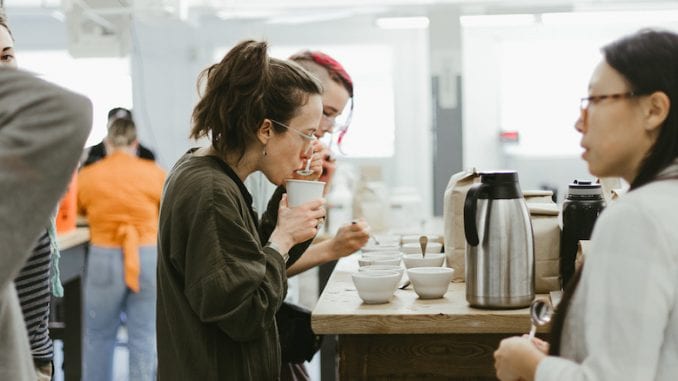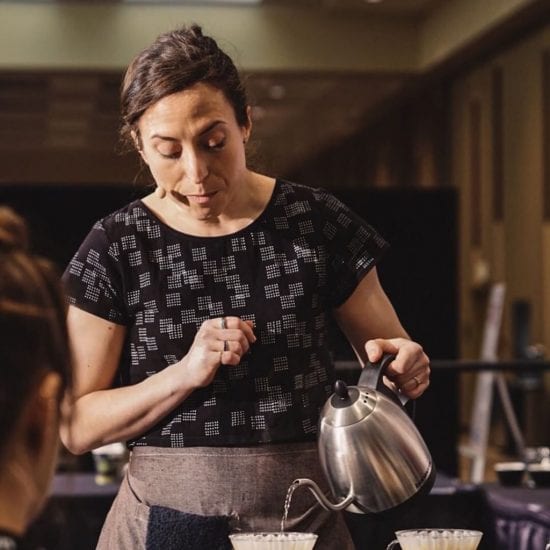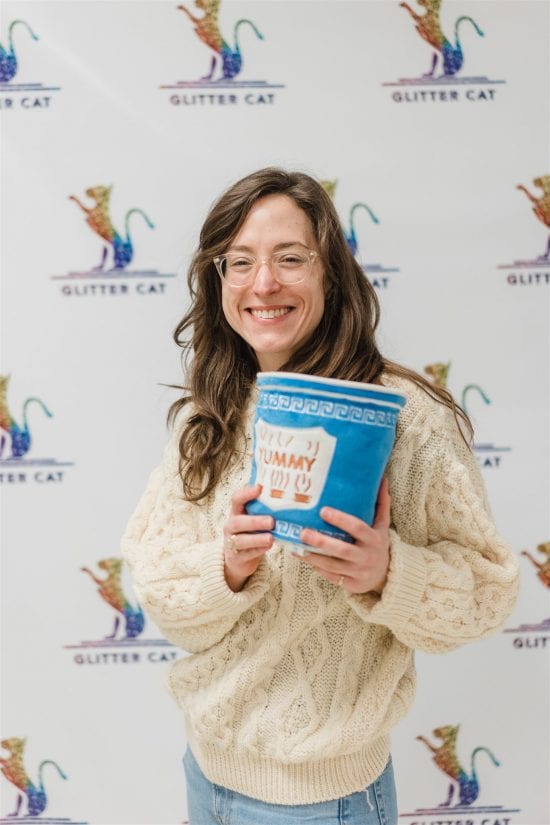
We get to know Chelsey Walker-Watson, a multi-time coffee competitor who works in green coffee sales at Atlas Coffee Importers in Seattle.
BY CHRIS RYAN
BARISTA MAGAZINE ONLINE
Cover photo by @hhaurora
Growing up in the U.S. coffee culture hub of Seattle, Chelsey Walker-Watson always had an affinity for the beverage, and a romantic idea of the position of barista. When she finally started working as a barista during college, what was meant to be a part-time job proved to be the start of a new career.
After more than a decade working in cafés, Chelsey eventually moved to the green side; she now works in green coffee sales at Atlas Coffee Importers. Along the way, she has picked up a breadth of experiences as a specialty-coffee pro, including twice making it to the U.S. Brewers Cup finals and several appearances as a public speaker advocating for a more inclusive coffee world.
In the first section of this two-part interview, we talk to Chelsey about getting interested in coffee, working on the green side, and discovering competition.

Chris Ryan: Can you tell us a bit about your background? Where did you grow up, and what did you study and plan to pursue professionally before you got interested in coffee?
Chelsey Walker-Watson: I grew up in the Seattle area. My original plans were to pursue a career in film, and I studied at UC Santa Cruz and University of Washington. Since high school, perhaps because I grew up in the Seattle area, I always conceived of working as a barista as a cool job. I took my first job in coffee to pay the bills during my last year at UW. At the time, the noncompete between Peet’s Coffee & Tea and Starbucks had just dissolved, and Peet’s was opening a flagship store in the Fremont neighborhood. Nobody in Seattle knew about Peet’s or Alfred’s role as the grandfather of specialty coffee, but I remembered it from my time in California.
I enjoyed Peet’s, I loved tasting coffee, and I appreciated the focus on coffee knowledge. I postponed for one year my move to Los Angeles for film, after graduating college, and accepted a promotion as an assistant store manager. Before I knew it, one year turned into nine years. I worked for Peet’s in Portland and Seattle, spending most of my time as a store manager and training manager.
After Peet’s, I helped my brother and mother open Slate Coffee Roasters in Seattle. I stayed there for five years, and it was time for a new adventure in coffee.
How did you start working on the green side, and with Atlas? How long have you been with them, and what’s your role there?
Our sales rep at Atlas mentioned that she was leaving and that they would be hiring a replacement, and I thought that her role would be a great fit for me. Craig Holt, Atlas’ founder and CEO, had always been extremely supportive of me and our business at Slate, and Atlas had been involved with many milestones. Our first team cupping was at Atlas in 2012, before we opened. Our first direct relationship was with Honduran producer Jorge Ventura, and Atlas brought that coffee in. I met Mokhtar Alkhanshali, whose coffee and story I shared for two Brewers Cup competition seasons, at Atlas, as Craig had mentored Mokhtar, and Atlas helped to get his first harvest out of Yemen. Most important, Craig was a very direct, honest communicator, and I knew that my values were aligned with the Atlas team.
I work in green coffee sales at Atlas, which means that I help roasters to source coffees that meet their needs. In addition, I work with my teammates Katherine and Tymika on social media and marketing. I celebrated by second anniversary with Atlas at the end of September.

How and when did you get interested in competition? Why was Brewers Cup the competition that appealed to you?
I was interested in the celebration of quality and skill presented at competition, and the way in which the process has driven innovation in specialty coffee. For a few seasons, from 2013 on, I supported competitors like Brandon Paul Weaver in the Barista competition. As the 2016 season approached, he lamented the lonely experience of competing without anyone else to share in it and asked if I would compete alongside him in Brewers Cup. Then, he decided not to compete, but agreed to support me in the process.
I was terrified, but a few things made me compete. At the café in Ballard, we only served pourover coffee and espresso (no batch brew) for the first few years that it was open, so I had brewed countless pourovers while talking with guests sitting in front of me at the bar. I realized that I could brew for three judges because I did it all day, almost every day. Ultimately, I competed in Brewers Cup because it scared me, and I try to overcome my irrational fears. I was terrified of public speaking, and I thought of myself as skilled in hospitality more than brewing technique. From my perspective, Brewers Cup competitors were super-geeks and experts in the craft of coffee, and I wanted to excel in that arena.
Check back tomorrow for the conclusion of our interview with Chelsey.

